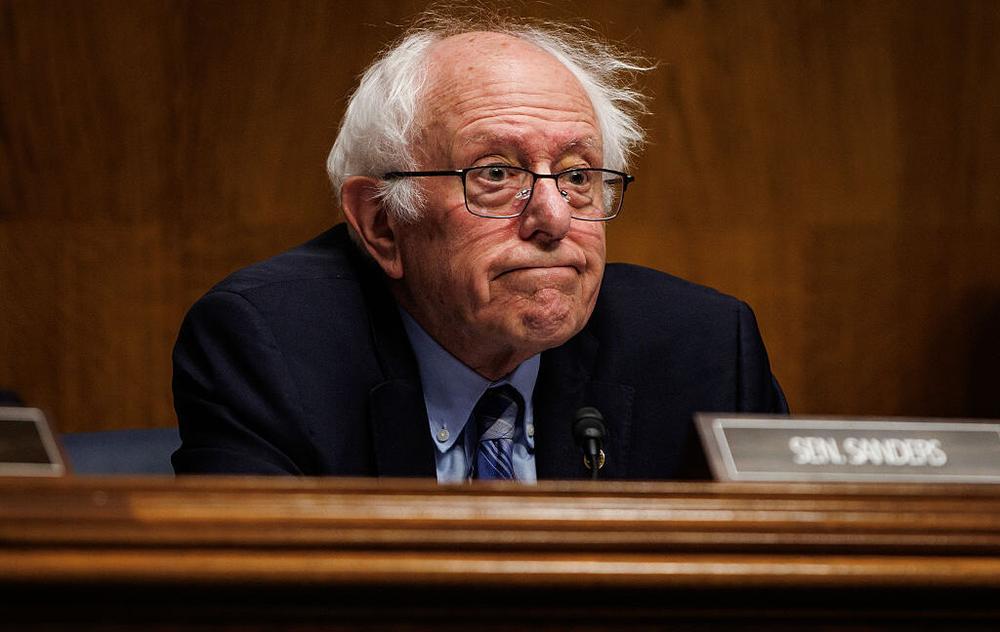After the Trump administration confirmed a rumor that the US is planning to buy a 10 percent stake in Intel, US Senator Bernie Sanders (I-Vt.) came forward Wednesday to voice support for the highly unusual plan, finding rare common ground with Donald Trump.
According to Commerce Secretary Howard Lutnick, the plan would see the US disbursing approved CHIPS Act grants only after acquiring non-voting shares of Intel and likely other chipmakers. That would allow the US to profit off its investment in chipmakers, Lutnick suggested, and Sanders told Reuters that he agreed American taxpayers could benefit from the potential deals.
"If microchip companies make a profit from the generous grants they receive from the federal government, the taxpayers of America have a right to a reasonable return on that investment," Sanders said.
While Lutnick gave Trump credit for coming up with what White House Press Secretary Karoline Leavitt described as a "creative idea that has never been done before" to protect US national and economic security, it appears that Lutnick is driving the initiative.
"Lutnick has been pushing the equity idea," insiders granted anonymity previously told Reuters, "adding that Trump likes the idea."
So far, Intel has engaged in talks, while the Taiwan Semiconductor Manufacturing Company (TSMC) and other major CHIPS grant recipients like Samsung and Micron have yet to comment on the potential arrangement the Trump administration seems likely to pursue. They may possibly risk clawbacks of grants if such deals aren't made.
On Wednesday, Taiwan Economy Minister Kuo Jyh-huei said his ministry would be consulting with TSMC soon, while noting that as yet, it's hard to "thoroughly understand the underlying meaning" of Lutnick's public comments. So far, Lutnick has only specified that "any potential arrangement wouldn’t provide the government with voting or governance rights in Intel," dispelling fears that the US would use its ownership stake to try to control the world's most important chipmakers.
Trump plan salvages CHIPS Act he vowed to kill
While chipmakers wait for more clarity, Lutnick has suggested that Trump—who campaigned on killing the CHIPS Act—has found a way to salvage the legislation that Joe Biden viewed as his lasting legacy. It seems possible that the plan arose after Trump realized how hard it would be to ax the legislation completely, with grants already finalized (but most not disbursed).
"The Biden administration literally was giving Intel money for free and giving TSMC money for free, and all these companies just giving the money for free, and Donald Trump turned it into saying, 'Hey, we want equity for the money. If we're going to give you the money, we want a piece of the action for the American taxpayer,'" Lutnick said.
"It’s not governance, we’re just converting what was a grant under Biden into equity for the Trump administration, for the American people,” Lutnick told CNBC.
Further, US firms could potentially benefit from any potential arrangements. For Intel, the "highly unusual" deal that Trump is mulling now could help the struggling chipmaker compete with its biggest rivals, including Nvidia, Samsung, and TSMC, BBC noted.
Vincent Fernando, founder of the investment consultancy Zero One, told the BBC that taking a stake in Intel "makes sense, given the company's key role in producing semiconductors in the US," which is a major Trump priority.
But as Intel likely explores the potential downsides of accepting such a deal, other companies applying for federal grants may already be alarmed by Trump's move. Fernando suggested that Trump's deals to take ownership stake in US firms—which economics professor Kevin J. Fox said only previously occurred during the global financial crisis—could add "uncertainty for any company who is already part of a federal grant program or considering one."
Fox also agreed that the Intel deal could deter other companies from accepting federal grants, while possibly making it harder for Intel to run its business "effectively."

 Couple Goals! This Woman Only Has Two Goals
Couple Goals! This Woman Only Has Two Goals